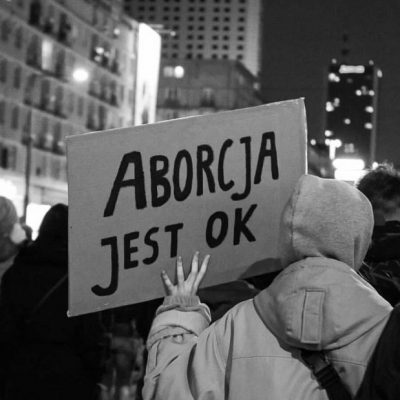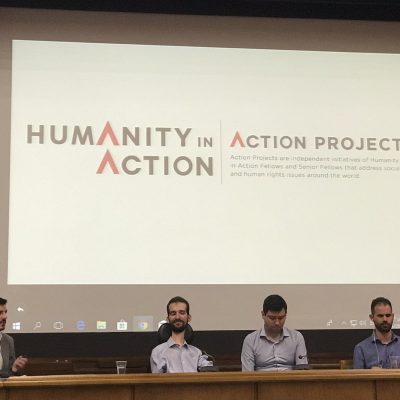Details
Article
“Thanks to the people protesting at the Polish Parliament, ‘disability’ gained face of specific humans. The protesters have proved that people with disabilities are not ‘incapable’ or ‘dependent’. People with disabilities have agency and are determined as well as aware of their rights and dignity.” — Dr. Adam Bodnar, Polish Ombudsman.
Day 40 of the sit-in:
“I could not fall asleep last night — I was afraid for my life,” one of the protesters with disability told the press. Not without reason. The authorities determined to end the sit-in, tightened their grip on a few protesters, who included adults with disabilities, incapable of independent existence and their parents (carers). They were denied access to fresh air (ban on opening the windows); their freedom of movement curtailed (the elevators were blocked and they could not leave Parliament’s building); their basic human needs of proper sanitation were unmet (no access to bathroom); the list goes on… Throughout those 40 days, the protesters slept on the Parliament’s floor with the lights turned on 24/7. The requirement of health and rehabilitative attention was breached as protesters’ physiotherapists were not allowed to give aid. For the NATO Parliamentary Assembly held at the Polish Parliament, the protesters were hidden with a…curtain. Ruling politicians triggered and fuelled wide-spread verbal aggression and dehumanizing speech directed towards protesters and by extension to individuals with disabilities in general. Those events in a nutshell signal key problems that Polish people with disabilities face on an everyday basis: isolation, segregation, dehumanization, depoliticization, direct and symbolic breach of their dignity and human rights.
In effect, though the sit-in started out with two financial demands that would minimally change the dramatic economic situation of people with disabilities, over the course of several days, it transformed into a disability human rights and independent living movement. This is a historic moment for the disability community and Polish society at large, disability studies experts state. For the first time since 1989, people with disabilities are perceived as citizens who are capable of civil disobedience. Disability enacted by protesters as a political and social issue and not solely as a depoliticized medical and welfare matter became for some Poles a threat and for others a symbol of empowerment. The protesters showed what (disability) human rights entail and why disability is vital for everyone. Disability was widely spoken about and debated on by opinion-forming communities. It became the topic of the day(s) for all Polish media and entered the everyday day conversations of Poles. Never before had the disability community gained so many individual and group allies. For the first time, members of the women’s movement firmly and openly supported the disability community — and by organizing protests in front of the Parliament, contributed to the construction of a nation-wide interest in the sit-in.
On the 40th day, protesters suspended the sit-in as they no longer could survive the inhuman conditions designed for them by the authorities in the Parliament. By many they were deemed ‘heroes’ and were met with a (standing) ovation when leaving the Parliament. As they state, once they recover they will continue the protest in some other form. However, this sit-in — as well as other disability protests that have been taking place in other places around the world (USA, UK, Hungary, Czech Republic, Bolivia etc…) — should be taken seriously by human rights activists and treated by us as a turning point. Overlooking disability as a human rights issue has contributed greatly to the marginalization and dehumanization of people with disabilities. It is high time to include disability in human rights initiatives and to become allies of people with disabilities. Nothing about us without…






